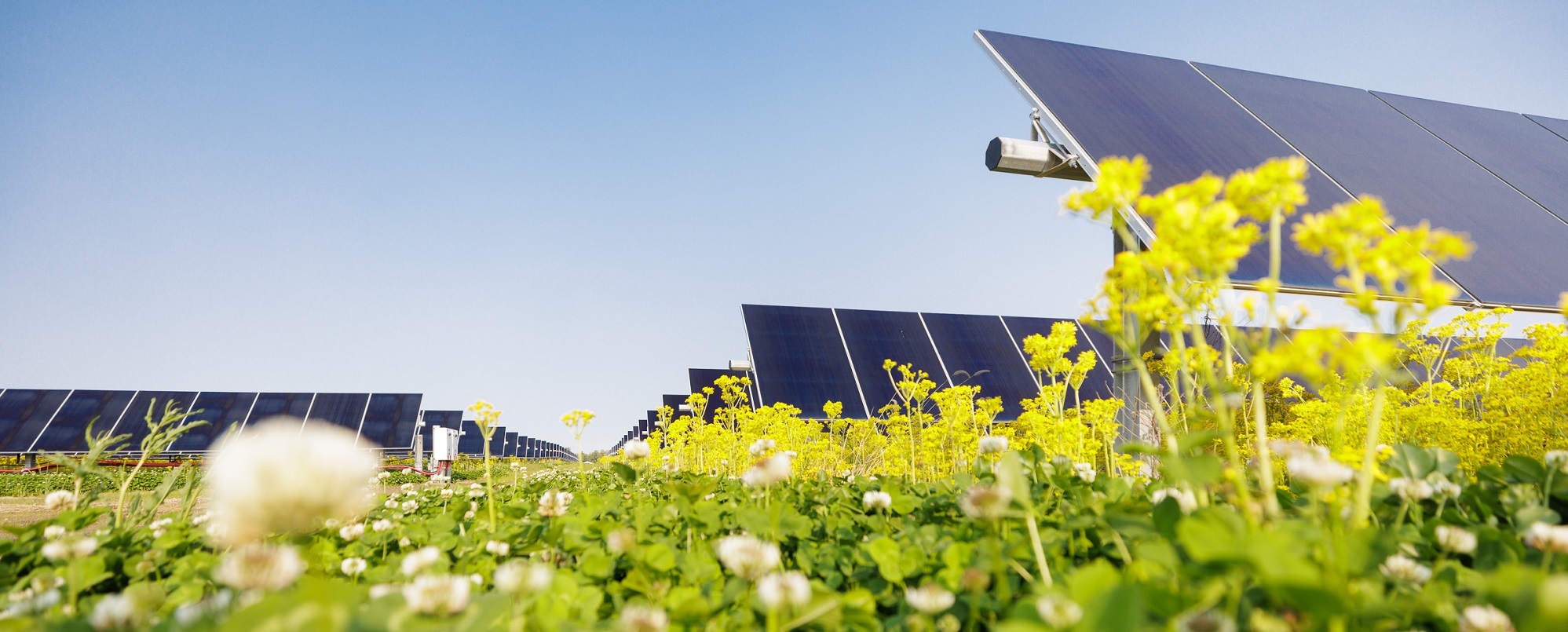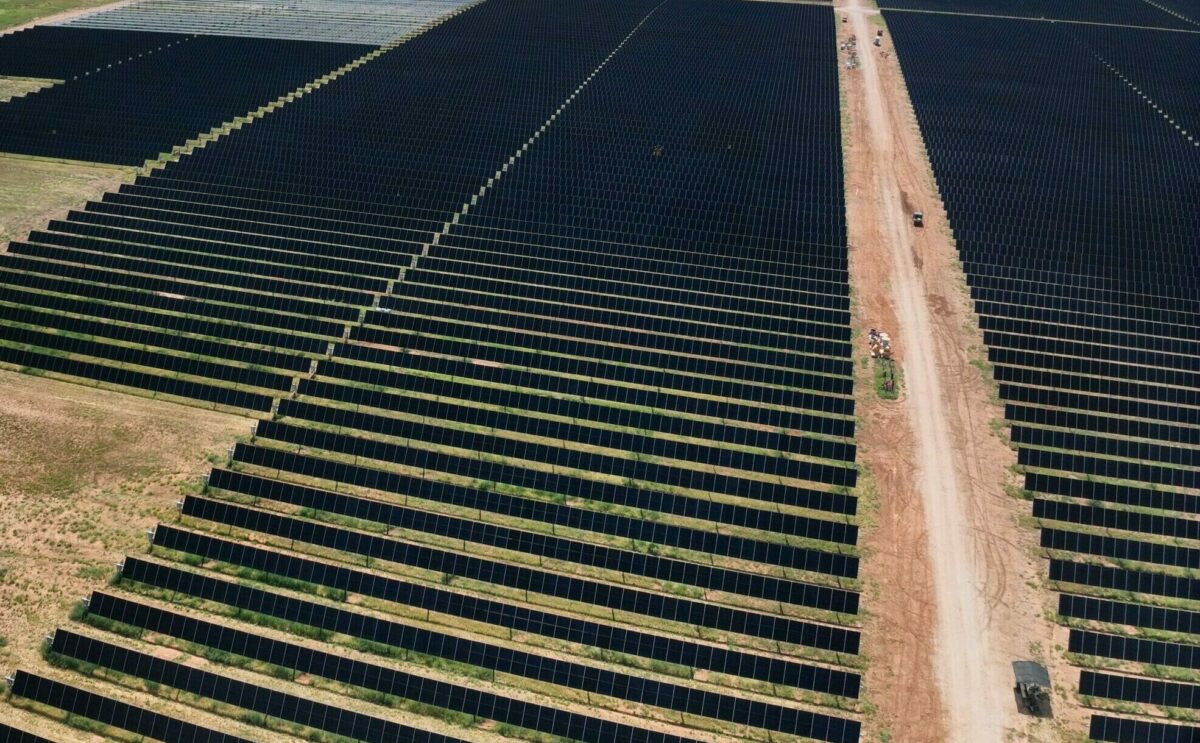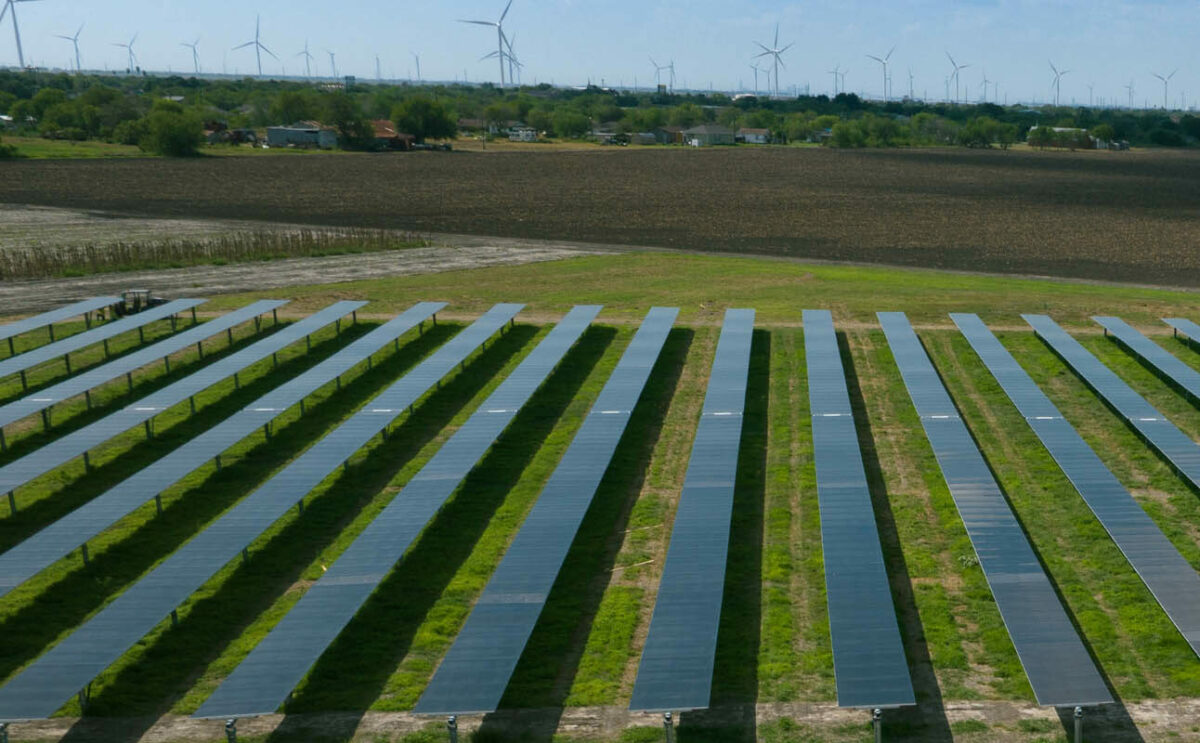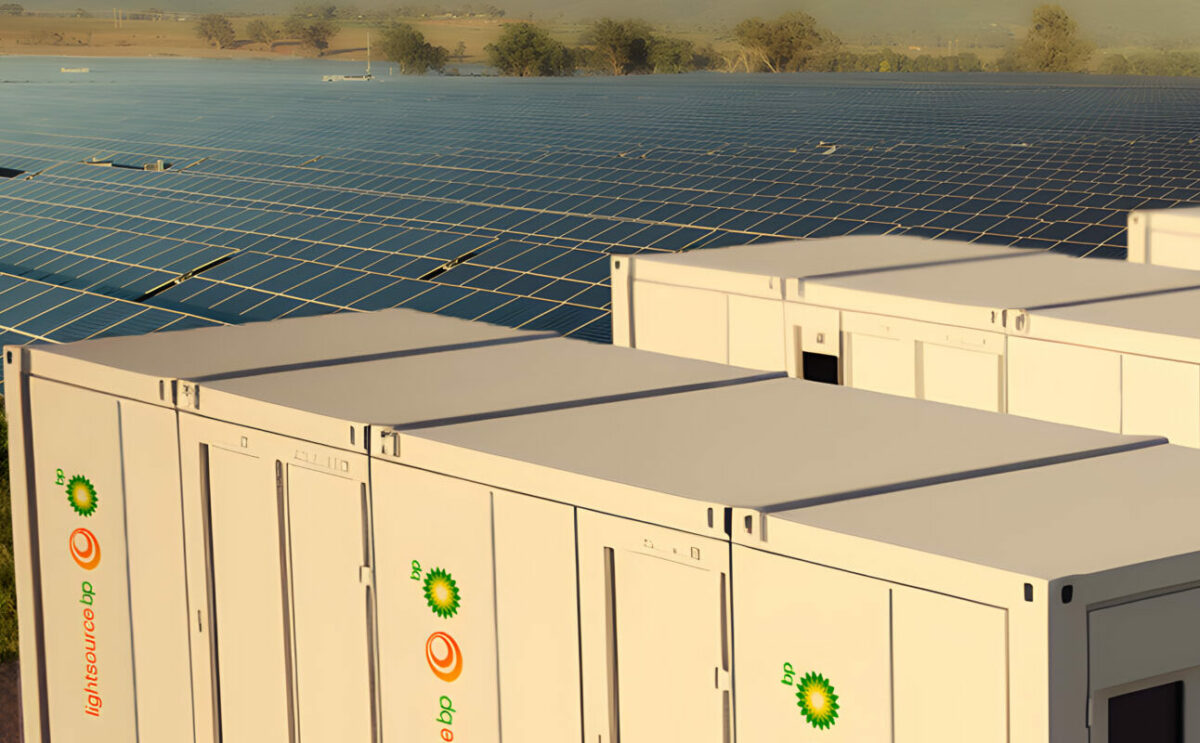Lightsource bp’s 152.5MW solar farm in Indiana helping reduce Verizon’s carbon footprint while contributing to leading pollinator habitat research
- Supports Verizon’s long-term commitment to sustainability and net zero goals
- Contributes to U.S. Department of Energy research on pollinator habitat co-located with large-scale solar
- Created hundreds of U.S. jobs, supporting domestic manufacturers
Lightsource bp has announced commercial operation of its 152.5 megawatt ac / 173 megawatt dc Bellflower Solar project, located about 40 miles east of Indianapolis in Henry and Rush Counties. Lightsource bp developed, financed and will own and operate Bellflower Solar, and has entered into a virtual power purchase agreement with Verizon with respect to the energy generated by Bellflower Solar. The solar farm is expected to offset the equivalent of 202,000 metric tons of carbon dioxide emissions each year¹, improving air quality while furthering Verizon’s goal of being carbon neutral in its operations (scope 1 and 2) by 2035.
James Gowen, SVP of global supply chain and sourcing, and chief sustainability officer at Verizon, said: “Verizon is committed to protecting our planet by supporting the production of renewable energy and the transition to a greener U.S. energy grid. The renewable energy produced by the Bellflower Solar project will help us achieve net zero operational emissions by 2035.”
Multiuse solar maximizes environmentally friendly benefits
The Bellflower solar farm brings many environmental benefits to Indiana, in addition to improving air quality by reducing carbon dioxide emissions from electricity generation.
Lightsource bp planted 800 acres of land under and around the solar panels with vegetation that includes native species beneficial to pollinators and other wildlife, which will be conserved for decades. An additional 10 acres has been dedicated to lush pollinator gardens with more than 60 different types of flowering plants.
The solar farm is participating in a research study which will measure the ecological benefits of pollinator habitat at utility- scale solar. The research team consists of the University of Illinois Chicago, the University of Illinois Urbana Champaign, the Argonne National Laboratory, and the National Renewable Energy Laboratory.
Land under and around the solar panels is also being kept in agricultural production. A local commercial beekeeper is managing hives and will produce solar farm honey, while another local Indiana farmer will graze sheep to help maintain the vegetation.
Kevin Smith, CEO of the Americas at Lightsource bp, said: “The Bellflower project is a great example of our commitment to responsible solar development in action. Beyond delivering clean, affordable and reliable energy, Lightsource bp has a deep commitment to maximizing the sustainable benefits of our solar projects for communities, protecting ecosystems and improving biodiversity.”
Home grown electricity supports energy security and the local economy
Bellflower Solar is helping reduce America’s foreign dependence and increase Indiana’s energy security with home-grown electricity. Projects like Bellflower also help strengthen local rural economies. The project is expected to generate $30 million in property tax revenue to Rush and Henry Counties over its life, benefitting local schools and other community public services. Its operations budget of $2.4 million each year will be primarily spent in the region.
The Bellflower project created hundreds of U.S. jobs across the supply chain, while supporting domestic manufacturers and low carbon products. More than 350 people worked on-site during peak construction to build the facility. SOLV Energy was the engineering, procurement, and construction (EPC) contractor for the project which included installation of 377,000+ ultra-low carbon solar panels manufactured by Arizona-based First Solar along with smart solar trackers manufactured by New Mexico-based Array Technologies.
George Hershman, CEO of SOLV Energy, added: “Indiana is an emerging leader in the clean energy transition, and Bellflower is a prime example of how investments in solar energy are benefitting Hoosiers. Large-scale projects like Bellflower bring economic benefits to the entire community through new employment and training opportunities for residents, support for local schools and nonprofits, and income for area businesses that SOLV Energy partners with throughout construction.”
References
1 Calculation based on EPA Greenhouse Gas Equivalencies Calculator, which uses the AVoided Emissions and geneRation Tool (AVERT) U.S. national weighted average CO2 marginal emission rate to convert reductions of kilowatt-hours into avoided units of carbon dioxide emissions. See:
https://www.epa.gov/energy/greenhouse-gases-equivalencies-calculator-calculations-and-references
.
Resources
Bellflower Solar
project website
Bellflower Solar
pollinator conservation research participation
Project photo library:
Link
(Images are for use in media coverage only and must be clearly credited to “Lightsource bp.”)
Latest news from Lightsource bp
13 Jan, 2026
USA: Lightsource bp and Toyota enter into a power contract in Texas
Lightsource bp and Toyota Motor North America have finalized a virtual power purchase agreement for energy from the 231MW Jones City 2 solar farm in Texas.
17 Oct, 2025
USA: Lightsource bp and Pinnacle Financial Partners announce $97.9M tax equity deal for Peacock Solar
Lightsource bp and Pinnacle Financial Partners today announced the closing of a $97.9 million tax equity deal to finance the 187 MW Peacock Solar in San Patricio County, TX.
18 Sep, 2025
Australia: Lightsource bp advances its first solar and storage hybrid project
Lightsource bp has commenced delivery on one of the first large-scale DC-coupled solar-battery hybrid projects in Australia.




